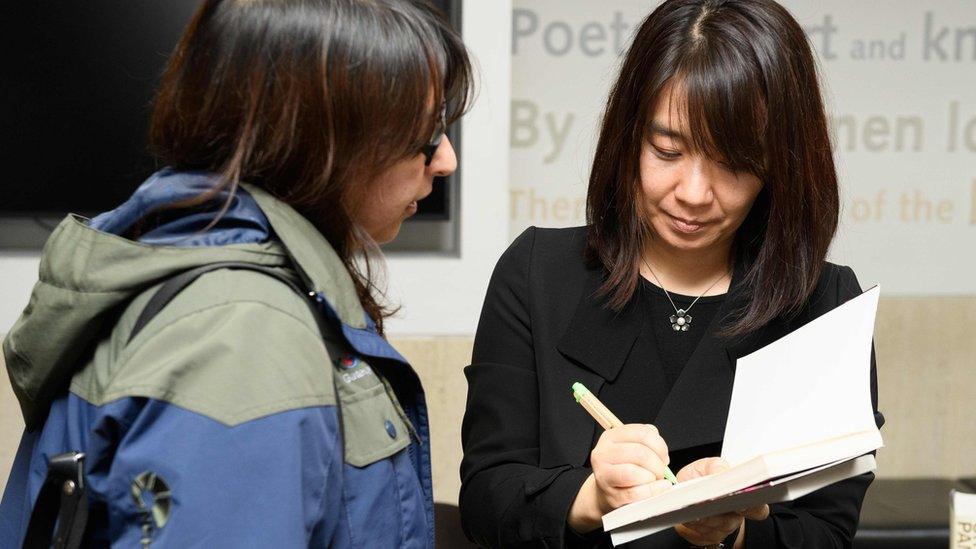Man Booker International Prize: Jokha Alharthi is first Arabic winner
- Published
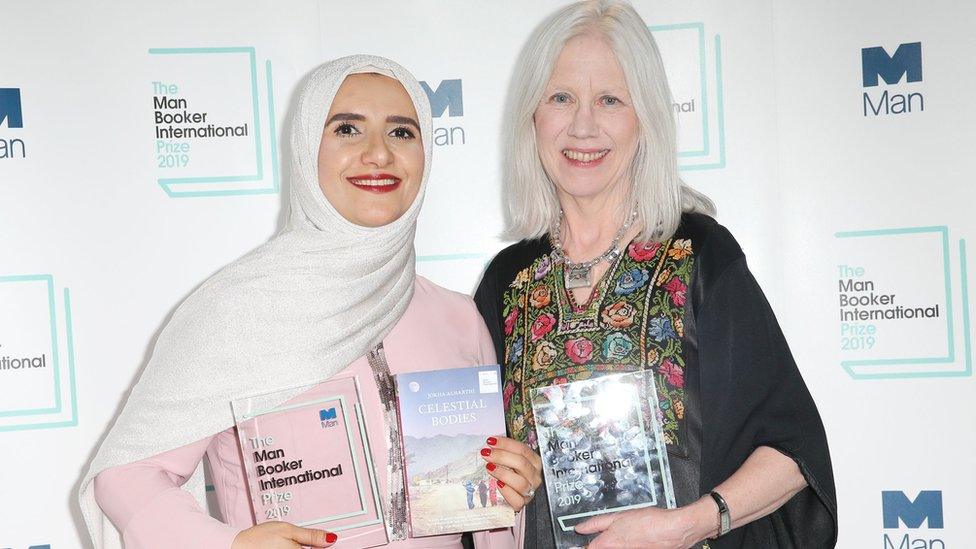
Jokha Alharthi (l) shared the award with translator Marilyn Booth
Omani author Jokha Alharthi has won this year's Man Booker International Prize - the first Arabic writer to do so.
Her novel Celestial Bodies centres on the lives of three sisters and their families coming to terms with social changes in Oman.
Judges described it as "a richly imagined, engaging and poetic insight".
Alharthi shares the award of £50,000 ($63,000) with her translator, the American academic Marilyn Booth.
"I am thrilled that a window has been opened to the rich Arabic culture," Alharthi told journalists after the ceremony at the Roundhouse in London.
"Oman inspired me but I think international readers can relate to the human values in the book - freedom and love."
Allow X content?
This article contains content provided by X. We ask for your permission before anything is loaded, as they may be using cookies and other technologies. You may want to read X’s cookie policy, external and privacy policy, external before accepting. To view this content choose ‘accept and continue’.

The award is also a big achievement for the publishers Sandstone Press, a small company in Dingwall, Scotland, with four full-time staff members and which puts out between 20 and 25 books per year.
A spokesperson from Sandstone, said the win was "extremely exciting" for the team.
"Our editor really championed Celestial Bodies, she saw something special in it," the spokesperson added.
"It's just a beautiful book about families and their loves and their losses. It's fantastic that we are able to see into this world."
Celestial Bodies is set in the village of al-Awafi and tells the stories of three sisters, who witness Oman's cultural evolution from a traditional society in the post-colonial period.
In particular, the story focuses on middle-class Omanis trying to come to terms with major changes to their way of life.
"It touches the subject of slavery. I think literature is the best platform to have this dialogue," said Alharthi, who is the first female Omani novelist to be translated into English. She's also an academic who was educated, in part, at Edinburgh University.
The chair of judges, historian Bettany Hughes, said the novel showed "delicate artistry and disturbing aspects of our shared history".
"The style is a metaphor for the subject, subtly resisting cliches of race, slavery and gender," she added.
Alharthi has previously written two collections of short fiction, a children's book and three novels in Arabic.

Follow us on Facebook, external, on Twitter @BBCNewsEnts, external, or on Instagram at bbcnewsents, external. If you have a story suggestion email entertainment.news@bbc.co.uk, external.
- Published7 September 2023
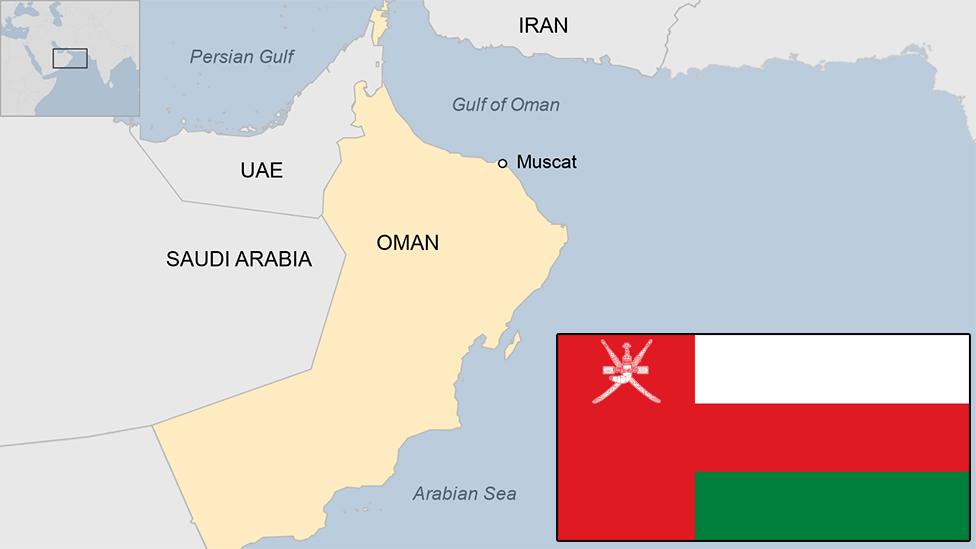
- Published22 May 2018
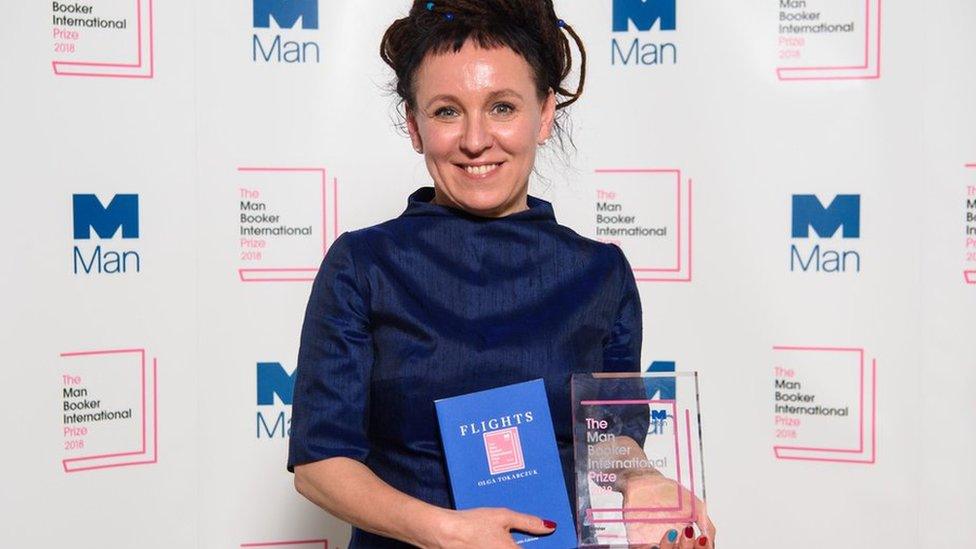
- Published15 June 2017
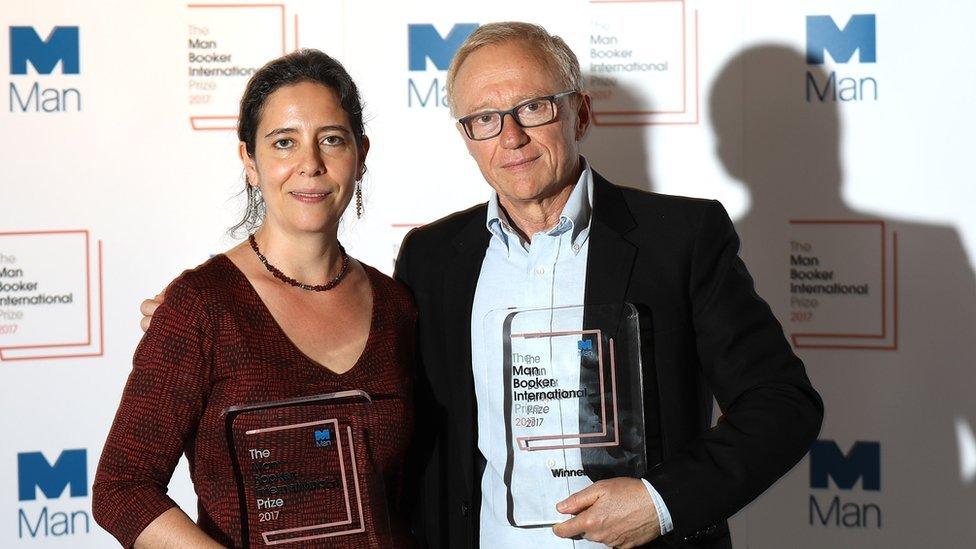
- Published17 May 2016
